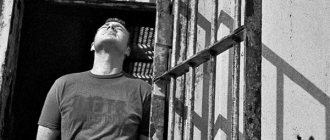ST 283 of the Criminal Code of the Russian Federation.
1. Disclosure of information constituting a state secret by a person to whom it was entrusted or became known through service, work, study or in other cases provided for by the legislation of the Russian Federation, if this information has become available to other persons, in the absence of signs of crimes provided for in Articles 275 and 276 of this Code is punishable by arrest for a term of four to six months or imprisonment for a term of up to four years with or without deprivation of the right to hold certain positions or engage in certain activities for a term of up to three years.
2. The same act, which through negligence entailed grave consequences, is punishable by imprisonment for a term of three to seven years with deprivation of the right to hold certain positions or engage in certain activities for a term of up to three years.
Commentary to Art. 283 Criminal Code
1. The subject of the crime is information constituting a state secret. For the concept of this information, see the commentary to Art. 275 of the Criminal Code.
2. The objective side of the crime is expressed in actions or inaction. Actions to disclose relevant information consist of illegally communicating it, transferring it to a person(s) who did not know it, in any form (in conversation, correspondence, when demonstrating documents containing relevant information, etc.). Inaction occurs when documents or objects containing relevant information are left unattended.
3. The crime is recognized as completed from the moment the specified information is perceived by third parties who do not have access to this information (Part 1). Perception means familiarization and memorization of specified information or its recording in another way. According to Part 2, the occurrence of grave consequences due to negligence is required (Part 2). The concept of grave consequences is evaluative. In this case, it is necessary to establish a cause-and-effect relationship between the fact of disclosure of state secrets and the resulting consequences, which is complicated when a crime is committed in the form of inaction. It is important to establish that these actions (inactions) do not contain signs of high treason (Article 275 of the Criminal Code) or espionage (Article 276 of the Criminal Code).
4. The subjective side (part 1) is characterized by both intent and negligence. The onset of grave consequences (under Part 2) occurs due to negligence. When committing a crime with direct intent, it must be distinguished from high treason (Article 275) and espionage (Article 276) according to the direction of intent (in these articles there is a goal to damage the security of the Russian Federation), as well as according to the subject.
5. Special subject: a person who has reached the age of 16, to whom information constituting a state secret was entrusted or became known through service, work, study or in other cases provided for by law.
Second commentary to Art. 283 of the Criminal Code of the Russian Federation
1. The immediate object of the crime is the defense capability and economic security of the state. The subject of this crime is information constituting a state secret, the concept of which was disclosed when characterizing high treason (Article 275 of the Criminal Code of the Russian Federation).
2. The objective side of the crime is expressed:
a) in actions (disclosure of relevant information);
b) in the consequences (information constituting a state secret becomes the property of other persons);
c) the causal relationship between these actions and consequences.
The crime is completed from the moment when the specified information becomes the property of an outsider (this requires perception, awareness by the outsider of the actual meaning of the information received by him).
3. The subjective side of the crime is characterized by both direct and indirect intent.
4. The subject of a crime may be a person who has reached the age of 16 years, to whom the disclosed information was entrusted or became known through service, work, study or in other cases provided for by the legislation of the Russian Federation, if this information became available to other persons, in the absence of signs of crimes, provided for in Art. 275, 276 CC.
5. Part 2 art. 283 of the Criminal Code provides for increased liability for the disclosure of state secrets, which through negligence entailed grave consequences. These should, in particular, be recognized as cases where, as a result of the disclosure of information, they became the property of foreign intelligence services, which requires the state to carry out expensive measures to neutralize such consequences.
6. Disclosure of state secrets, if this occurs in the form of high treason or espionage, is qualified under Art. 275, art. 276 of the Criminal Code.
Case (No.)
SENTENCE
In the name of the Russian Federation
Nizhny Novgorod city June 06, 2022
Kanavinsky District Court of N. Novgorod, composed of presiding judge Fomicheva T.A.
with the secretary of the court session Vladimirskaya I.N.
with the participation of the state prosecutor, assistant prosecutor of the Kanavinsky district of N. Novgorod, Serebrennikova M.S.,
defendant Gorbunov V.S.
his defender, lawyer S.M. Sizova, who presented a certificate (No.) and a warrant (No.) dated (DD.MM.YYYY.),
having examined in open court in a special manner the materials of the criminal case against Vyacheslav Sergeevich Gorbunov, December 4, 1995 (data anonymized), accused of committing crimes under Part 1 of Art. 183, part 1 art. 272 of the Criminal Code of the Russian Federation;
INSTALLED:
Gorbunov V.S. committed two minor crimes in the Kanavinsky district of Nizhny Novgorod under the following circumstances.
In accordance with paragraph 1 of Art. 3 Federal Law of July 29, 2004 No. 98-FZ “On Trade Secrets”, a trade secret is a regime of confidentiality of information that allows its owner, under existing or possible circumstances, to increase income, avoid unjustified expenses, maintain a position in the market for goods, works, services, or obtain other commercial benefit.
Clause 2 Art. 3 Federal Law of July 29, 2004 No. 98-FZ “On Trade Secrets” explains that information constituting a trade secret is information of any nature that has actual or potential commercial value due to its unknownness to third parties, to which third parties do not have access free access on a legal basis and in respect of which the owner of such information has introduced a trade secret regime.
According to the list of restricted access information specified in Appendix No. 1 to the Procedure “Handling Restricted Access Information”, information on the availability, content and terms of existing and concluded agreements with the Company’s partners and clients, including information on the amount of remunerations and discounts by the Company’s partners, as well as information of limited access to partners and clients, in respect of which the Company has undertaken obligations to protect it, is confidential and contains a trade secret.
According to Art. 9 of the Federal Law “On Information, Information Technologies and Information Protection” No. 149-FZ of July 27, 2006, restriction of access to information is established by federal laws in order to protect the foundations of the constitutional system, morality, health, rights and legitimate interests of other persons, and ensure defense country and state security, it is mandatory to maintain the confidentiality of information, access to which is limited by federal laws.
In accordance with paragraph 1 of Art. 16 of the above law, information protection is the adoption of legal, organizational and technical measures aimed at: ensuring the protection of information from unauthorized access, destruction, modification, blocking, copying, provision, distribution, as well as from other unlawful actions in relation to such information.
In accordance with paragraph 1 of Art. 16 of the above law, the owner of information, the operator of the information system, in cases established by the legislation of the Russian Federation, is obliged to ensure: prevention of unauthorized access to information and (or) transfer of it to persons who do not have the right to access information.
Gorbunov V.S. hired by LLC "SiES Process Management" in accordance with the contract dated (DD.MM.YYYY.) No. (No.). In accordance with clause 7.3 of the agreement dated (DD.MM.YYYY.) No. (No.) Gorbunov V.S. must take all possible measures to maintain the confidentiality of information that constitutes a trade secret of the LLC “(data anonymized)” organization.
Between CS Process Management LLC and are classified as secrets protected by law.
During the time period from (DD.MM.YYYY.) to (DD.MM.YYYY.), the exact time has not been established, Gorbunov V.S. a criminal intent arose aimed at the illegal collection of information constituting a trade secret of LLC “(data anonymized)”, namely the illegal collection of personal information about clients.
Implementing his criminal intent aimed at illegally collecting information constituting a trade secret of LLC “(data anonymized)”, namely the illegal collection of personal information about clients, V.S. Gorbunov. (DD.MM.YYYY.) at about 15:00, while at his workplace, office 401 at the address: (address impersonal), he gained access to the account of his colleague, FULL NAME1, who, not knowing about the criminal purpose of V.S. Gorbunov. , on the same day, that is (DD.MM.YYYY.), told the latter his login and password.
After this, V.S. Gorbunov, continuing to implement his criminal intent to illegally collect information constituting a trade secret, using the account, login and password FULL NAME1 from his work computer, logged into the system, where he found a folder called “(data anonymized) Realizing that in this folder there is information containing a trade secret, to which he, due to his work, did not have access, without taking the measures provided for in the agreement with the LLC (data anonymized) to maintain the confidentiality of information, V.S. Gorbunov. (DD.MM.YYYY.) at about 15:00, while in the office located at the address: N. Novgorod, (address anonymized), acting intentionally, having access to the information system, using someone else's account login, FULL NAME1, called “(data anonymized)” installed on a work computer, illegally copied the database of PJSC clients (data anonymized)” to his cell phone brand “(No.)” for personal use.
In addition, V.S. Gorbunov, being an employee of LLC “(data anonymized)” on the basis of an agreement dated (DD.MM.YYYY.) No. BK-(No.), is obliged to provide services for finding subscribers for connecting broadband Internet access ( telematic services and data transmission services) and digital television, while not having direct access to information constituting a secret protected by law.
Between SS Process Management LLC and ) an agreement for the provision of paid services dated (DD.MM.YYYY.) No. (No.) was concluded, according to which LLC "(No.)" undertakes to provide PJSC "(data anonymized)" on a reimbursable basis, services for sales support, promotion of goods and services, services for organizing document flow in a PJSC company (data anonymized),” as well as other services.
During the course performed by Gorbunov V.S. work, he did not have direct access to personal information about clients, which, in accordance with clauses 1, 2 of Art. 3 Federal Law dated July 29, 2004 No. 98-FZ “On Trade Secrets” refers to secrets protected by law.
During the time period from (DD.MM.YYYY.) to (DD.MM.YYYY.), the exact time has not been established, Gorbunov V.S. a criminal intent arose aimed at providing illegal access to computer information constituting a trade secret of LLC “(data anonymized), namely, illegal access to personal information about clients, and subsequent copying of this information for personal purposes.
Implementing his criminal intent aimed at providing illegal access to computer information constituting a trade secret of LLC "(data anonymized)", namely, illegal access to personal information about clients, and subsequent copying of this information, V.S. Gorbunov. (DD.MM.YYYY.) at about 15:00, while at his workplace, office 401 at the address: g (address impersonal), he gained access to the account of his colleague, FULL NAME1, who, not knowing about the criminal purpose of V.S. Gorbunov ., on the same day, that is (DD.MM.YYYY.), told the latter his login and password.
After this, V.S. Gorbunov, continuing to implement his criminal intent to illegally access computer information constituting a trade secret, using the account, login and password FULL NAME1 from his work computer, logged into the system, where he found a folder called “(data anonymized )". Realizing that this folder contains information containing a trade secret to which, due to his work, he did not have access, Gorbunov V.S. (DD.MM.YYYY.) at about 15:00, while in the office located at the address: (address anonymized) (address anonymized), acting intentionally, he gained unlawful access to the information system using someone else’s account login FULL NAME1 called “ (data anonymized) installed on a work computer, after which he illegally copied the client database of PJSC “(data anonymized)” to his cell phone brand “(No.)” for personal use.
At the court hearing, the defendant V.S. Gorbunov. He admitted this charge of committing two crimes fully and voluntarily, after consultation with the defense lawyer and in his presence supported the petition submitted to the court for a verdict without a trial. The defendant testified that he was fully aware of the nature and consequences of the stated petition.
Gorbunov V.S. accused of committing two crimes that fall into the category of minor gravity, the punishment for which does not exceed 10 years in prison, the charge is justified, confirmed by the totality of evidence collected in the case, the admissibility of which is not disputed by the defense. The defendant understands the essence of the charge brought against him and agrees with it in full; he promptly, voluntarily and in the presence of a defense lawyer filed a petition for a special procedure, the defense lawyer supported this petition.
The representative of the victim PJSC “(data anonymized)” FULL NAME2, duly notified of the time and place of consideration of the case, in a written statement addressed to the court, asked to consider the case in his absence, and agrees to consider the criminal case in a special judicial procedure.
The state prosecutor and the defense did not object to the sentencing without a trial.
The correctness of the legal qualifications of those charged with V.S. Gorbunov. criminal actions under Part 1 of Art. 183, Part 1 of Art. 272 of the Criminal Code of the Russian Federation does not raise any doubts.
Based on the foregoing, the court considers that all conditions for passing a sentence without a trial, provided for in Art. 314, 315 Code of Criminal Procedure of the Russian Federation.
The court qualifies the actions of V.S. Gorbunov. according to Part 1 of Art. 183 of the Criminal Code of the Russian Federation - collection of information constituting a trade secret in another illegal way, according to Part 1 of Art. 272 of the Criminal Code of the Russian Federation - unlawful access to computer information protected by law, if this act entailed copying of computer information.
The mental state of health of the defendant V.S. Gorbunov, taking into account the data obtained in court about his personality, behavior at the time and after the commission of crimes, during the trial, does not raise doubts in the court. Therefore, the court recognizes the defendant V.S. Gorbunov. sane, subject to criminal liability and punishment.
When determining the type and amount of punishment for Gorbunov V.S. for each crime the court, guided by Art. 6, 43, 60 of the Criminal Code of the Russian Federation takes into account the nature and degree of public danger of the crimes committed, information about the personality of the defendant, circumstances mitigating the punishment, the impact of the punishment on the correction of V.S. Gorbunov. and on the living conditions of his family, on the achievement of other goals, such as the restoration of social justice and the prevention of new crimes, as well as the health status of the defendant V.S. Gorbunov. and members of his family.
As circumstances mitigating the punishment for each crime, in accordance with paragraphs. "and" part 1 art. 61 of the Criminal Code of the Russian Federation in relation to V.S. Gorbunov. The court recognizes and takes into account when assigning punishment: confession (vol. (No.)).
Gorbunov V.S. We have no criminal record, are not registered with a psychiatrist or narcologist (vol. (No.)); he is characterized positively at his place of residence and place of study (Vol. 1 (No.)), has letters of gratitude and certificates.
These circumstances taken together by the court, as well as admission of guilt, repentance for what they did, in accordance with the requirements of Part 2 of Art. 61 of the Criminal Code of the Russian Federation, recognizes for each crime mitigating circumstances for the defendant’s punishment.
Aggravating circumstances in relation to V.S. Gorbunov, provided for in Art. 63 of the Criminal Code of the Russian Federation, not established by the court.
Provisions of Part 1.5 of Art. 62 of the Criminal Code of the Russian Federation are not applied when assigning punishment, due to the fact that the defendant for each crime is not assigned the most severe punishment provided for by the sanctions of Part 1 of Article 183, Part 1 of Art. 272 of the Criminal Code of the Russian Federation.
Any exceptional circumstances that significantly reduce the degree of public danger of the crimes committed and allow the provisions of Art. 64 of the Criminal Code of the Russian Federation to the defendant, the court does not see that mitigating circumstances were taken into account when determining the amount of punishment.
The court finds no grounds for the provision provided for in Part 6 of Art. 15 of the Criminal Code of the Russian Federation changes the category of crime to a less serious one for each crime.
Taking into account the above, the provisions of Art. Art. 43, 46 of the Criminal Code of the Russian Federation, taking into account the circumstances and criminological characteristics of the crimes committed by V.S. Gorbunov. crimes, information about the personality, property and marital status of the defendant, the possibility of him receiving income, the court considers it possible to appoint V.S. Gorbunova. for each crime the punishment is in the form of a fine to the state's income, determined by the court within the sanction of the articles of the criminal law incriminated against him.
At the same time, the court considers that the amount of punishment for V.S. Gorbunov must be sufficient to correct the convicted person, finally assigns punishment in accordance with the application of Art. 69 part 2 of the Criminal Code of the Russian Federation for the totality of crimes, by partial addition of the imposed punishments. Taking into account the personality of the defendant, the court does not see any grounds for imposing punishment by full addition.
There are no grounds for sentencing the defendant without imposing punishment or releasing him from punishment.
Gorbunov V.S. in accordance with Art. Art. 91, 92 of the Code of Criminal Procedure of the Russian Federation was not delayed.
In accordance with Part 20 of Art. 316 of the Code of Criminal Procedure of the Russian Federation when rendering a sentence in a special procedure for making a judicial decision, the procedural costs provided for in Art. 131 of the Code of Criminal Procedure of the Russian Federation, are subject to compensation from the federal budget.
The court decides the fate of the material evidence in accordance with the requirements of Art. Art. 81-82 Code of Criminal Procedure of the Russian Federation.
Based on the above and guided by Articles 296-304, 308-310, 314, 316-317 of the Code of Criminal Procedure of the Russian Federation, the court
SENTENCED:
Find Vyacheslav Sergeevich Gorbunov guilty of committing crimes under Part 1 of Art. 183, part 1 art. 272 of the Criminal Code of the Russian Federation.
Assign punishment to Vyacheslav Sergeevich Gorbunov under Part 1 of Art. 183 of the Criminal Code of the Russian Federation in the form of a fine in the amount of 15,000 (fifteen thousand) rubles.
Assign punishment to Vyacheslav Sergeevich Gorbunov under Part 1 of Art. 272 of the Criminal Code of the Russian Federation in the form of a fine in the amount of 15,000 (fifteen thousand) rubles.
In accordance with Art. 69 part 2 of the Criminal Code of the Russian Federation for the totality of crimes, by partial addition of the imposed punishments, finally assign Vyacheslav Sergeevich Gorbunov a punishment in the form of a fine in the amount of 20,000 (twenty thousand) rubles.
Procedural costs will be reimbursed from the federal budget.
Physical evidence in the case: brand cell phone (data anonymized)" in a black case - stored in the evidence storage room of the Investigative Committee at (address anonymized) Nizhny Novgorod, Investigative Directorate of the Investigative Committee of Russia for the Nizhny Novgorod Region, after the verdict enters into legal force, transfer Gorbunov V.S., or his representative; CD DVD+R, screenshot from a cell phone FULL NAME1 – stored in the materials of the criminal case, after the verdict enters into legal force, store in the criminal case.
The verdict can be appealed on appeal to the Nizhny Novgorod Regional Court through the Kanavinsky District Court of Nizhny Novgorod within ten days from the date of proclamation, with the exception of the grounds that the court’s conclusions set out in the verdict do not correspond to the actual circumstances of the criminal case established by the court of first instance, within the Art. 317 Code of Criminal Procedure of the Russian Federation.
If an appeal is filed, the convicted person has the right to petition for his participation in the court of appeal; has the right to invite a defense attorney to participate in the consideration of a criminal case by an appellate court; has the right to petition the court to appoint a defense lawyer, including free of charge, in cases provided for by the Code of Criminal Procedure of the Russian Federation; has the right to refuse counsel.
Within three days from the date of proclamation of the verdict, the parties have the right to request familiarization with the minutes of the court hearing.
Details for transferring the amount of the fine: Recipient of funds: UFK for the Nizhny Novgorod region (investigative department of the Investigative Committee of the Russian Federation for the Nizhny Novgorod region l/s 04321A59470)
INN 5262259747 KPP 526201001 OKTMO 22701000 KBK 417 1 16 21010 01 6000 140 L/s 04321A59470 in the Federal Tax Service for the Nizhny Novgorod Region Account number 40(No.) Recipient bank: Volgo-Vyatsk State Administration of the Bank of Russia (address impersonal) B IK 042202001
Chairman (signature) T.A. Fomicheva
Copy is right.
Judge: T.A. Fomicheva
Secretary of the court session I.N. Vladimirskaya
The true verdict is in the materials of the criminal case (No.) in the Kanavinsky District Court of N. Novgorod.



